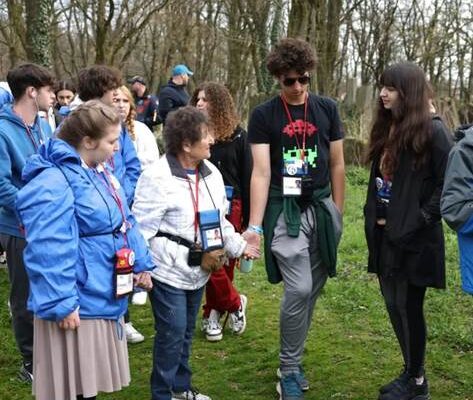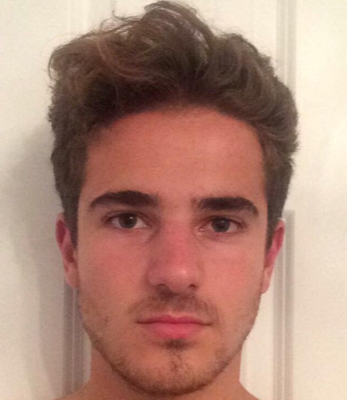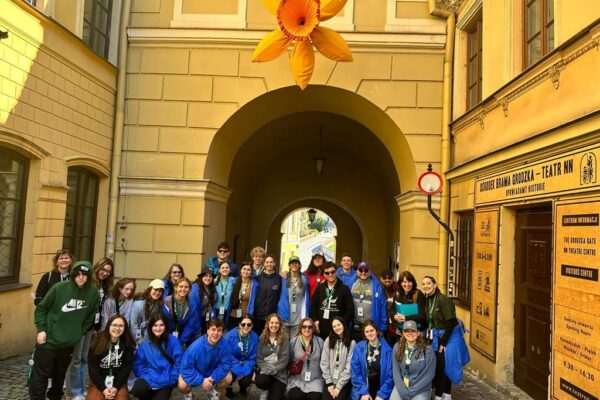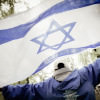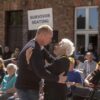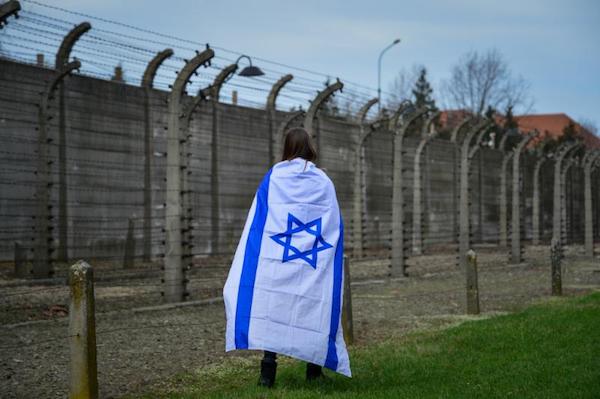
Transformation
Beautiful are those whose brokenness gives birth
to transformation and wisdom. ~ John Mark Green
Background:
Three weeks ago, I marched with 14,000 people from 52 different countries down the same 3-kilometer path leading from Auschwitz to Birkenau on Holocaust Remembrance Day – Yom Hashoah – as a tribute to all victims of the Holocaust.
I had the honor of staffing a group of teens from San Diego, Los Altos, Las Vegas and Tucson on the 30 th Anniversary of the March of the Living and the 7O th Year of Independence on Israel. We were fortunate enough to be marching alongside and traveling with Manya Wallenfels, one of the few survivors left to share their story first hand.
The International March of the Living is an annual educational program, bringing individuals from around the world to Poland and Israel to study the history of the Holocaust and to examine the roots of prejudice, intolerance and hatred. The March of the Living is joined every year by thousands of Jewish teens, adults and survivors from around the world, along with many other people from diverse faiths and backgrounds. The universal goal of the International March of the Living is to help inspire participants to fight indifference, racism and injustice by witnessing the atrocities of the Holocaust. It is the hope of MOTL that the program will help strengthen Jewish identity, connections to Israel and build a community of future Jewish leaders.
It has been twenty-two years since I was in Poland, as one of the leaders of MOTL from San Diego and Tucson.
_______________________________________________________________________
I am still processing the March. Our leader tells the teens parents “Be patient about what and how much they tell you about their experiences. They will be mentally and physically exhausted. It will take time- and over time- with pieces here and there – they will tell you about their experiences.
Upon their return- they will still be processing the whole journey.
It will take time for them- and each in his and her own way and time frame to process the experience…it could take years…or little things will hit them at unknown times. That is all normal and natural.” I can say for having been on the March and just returning again, this could not be truer and that my experiences also will unfold at their natural pace and my sharing too will take time. Having said that, I look forward to sharing with you, engaging in discussions if you would like to know more and your patience as I fumble to get the words out of an experience that has often left me with no words.
One of the words, however, that keeps coming to mind since I have returned to the States is transformation. In the technical definition of transformation, a thorough or dramatic change in form or appearance occurs, in other words from one state to another. I am compelled by the deeper meaning of transformation as what happens both by experience and understanding.
This word evokes powerful questions such as How has the world changed since I last was on the March? How has Poland changed? What is new and different in Israel since I was there eight years ago? How has anti-Semitism, bigotry, racism, and intolerance shifted? Are we as a society being more kind or is there more hate in the world? And more personally, who am I today ? How, if at all, has my identity changed over time? What mistakes have I made? Where have my ideas, opinions and beliefs grown? What sort of social and environmental action do I participate in helping to heal, repair and transform the world (tikkun olam)? How has this March impacted me differently than it did when I was younger and in a different station in life? How will this experience continue to affect me, and influence what I do and how I see my world?
Our teens have not only become the living testimony for future generations, they are part of the builders of today. To remember never to forget does not mean we are victims, we are survivors who build and carry on. I hope that they have more of a sense of who they are, understand what being Jewish means to them and the responsibility they now carry as Elie Wiesel’s famous words state, when you listen to a witness, you become a witness. How will they be part of the woven tapestry of Jewish wisdom and values of the past three thousand years? How will they apply this experience and move forward in their gap year, college and beyond in their young lives as part of contemporary American Jewish life? How will they choose to cultivate their identity and walk in this world as human beings? I was amazed each day by their energy, their reflections, their questions and wonder, they are the light and I wish for them to continue to shine brightly and keep the flame alive.
Think back to a time in your life when someone gave you an invitation or an opportunity and you said ‘yes.’ It might have been in high school or college. It might have been in your career, in your church or synagogue, or with some relational opportunity. Describe the opportunity or the invitation. Why did you say ‘yes’ and how did that decision shape you?”
I leave with you a few questions for you to ponder about your own transformation and where you would like to see change in your life and world.
1. Where do I want to be in five years?
2. How do I want to feel on the inside in 5 years’ time?
3. Where will I be emotionally, physically and spiritually?
4. What bad habits do I need to stop? What do I need to take responsibility for?
5. What mistake have I made? What would I do differently?
6. What story have I told myself? What conditioning did I received?
7. Who would you be if you weren’t concerned with pleasing and caring for others?
8. If no one judged me, who will I be?
9. What do I really care about? How can I make a difference?
Written by Arianne Weiner, Western Region 2018
